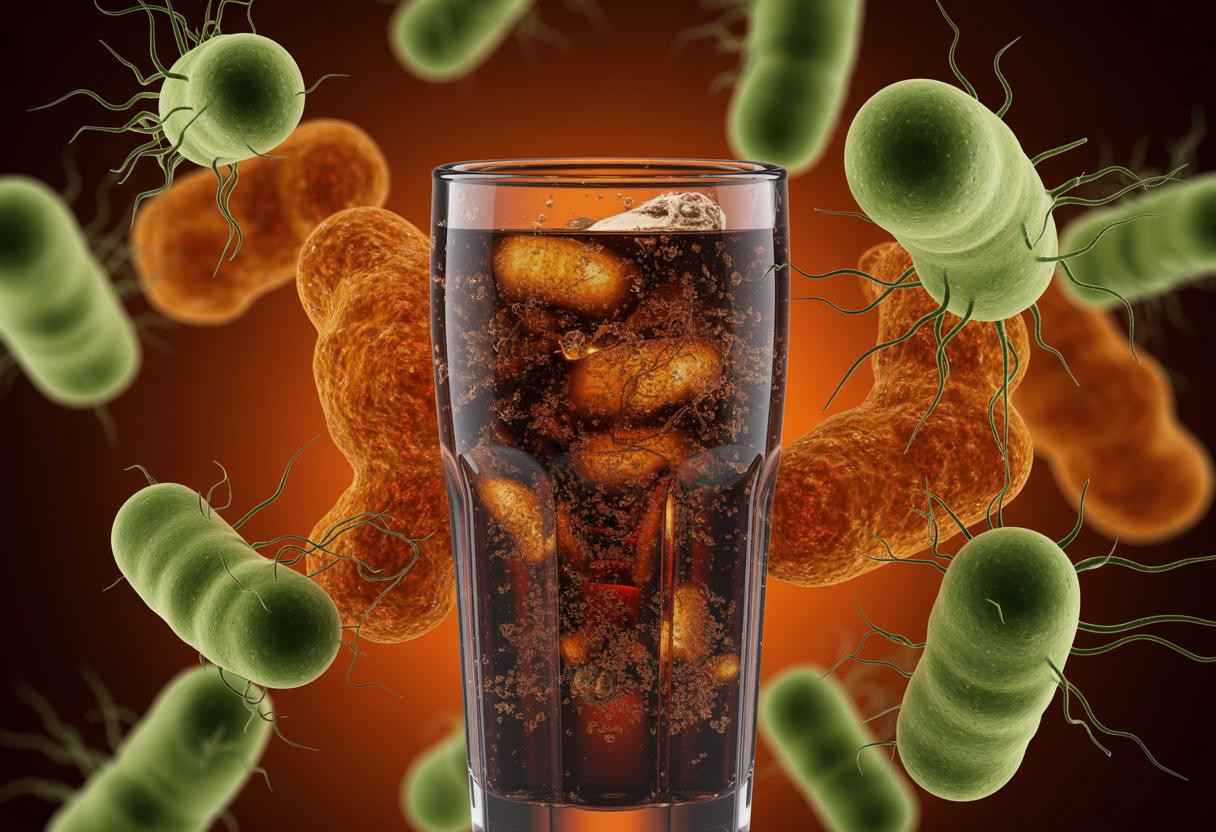That artificially sweetened diet soda you’re sipping might be doing more than just satisfying your sweet tooth—it could be fundamentally rewiring your gut bacteria in ways that promote belly fat storage and metabolic dysfunction. Recent groundbreaking research reveals that synthetic sweeteners don’t just pass through your system harmlessly; they actively disrupt the delicate ecosystem of microorganisms that control your metabolism, appetite, and fat distribution.
The hidden truth about artificial sweeteners and gut health
For decades, artificial sweeteners were marketed as the perfect solution for weight management—all the sweetness with none of the calories. However, emerging research paints a dramatically different picture. Synthetic sweeteners like sucralose and saccharin reduce beneficial gut bacteria by up to 25% while promoting the growth of harmful microorganisms linked to inflammation and metabolic disorders.
A 2025 study using advanced minibioreactor technology found that these synthetic compounds don’t just alter which bacteria thrive in your gut—they completely destabilize the intricate networks that keep your microbiome balanced and resilient. Meanwhile, people consuming high levels of artificial sweeteners show a 3-fold increased risk of developing diabetes and 2.6 times higher diabetic mortality rates compared to those who avoid them entirely.
What makes this particularly concerning is that many of seemingly healthy habits that may be damaging your gut microbiome include regular consumption of diet products marketed as beneficial for weight loss.
How synthetic sweeteners sabotage your metabolism
The bacterial disruption that triggers fat storage
When synthetic sweeteners enter your digestive system, they bind directly to microbial receptors and trigger a cascade of metabolic changes. Aspartame consumption enriches toxin-producing bacterial pathways in the small intestine, while sucralose and saccharin specifically target beneficial Lachnospiraceae bacteria—the same microorganisms responsible for producing short-chain fatty acids that regulate appetite and fat burning.
This disruption doesn’t happen gradually. Research shows that even short-term exposure can reduce Shannon diversity indices—a key measure of microbiome health—by 15-25% within days. The result? Your gut loses its ability to properly process nutrients and regulate hunger hormones like GLP-1, leading to increased cravings and visceral fat accumulation.
The inflammation connection to belly fat
Perhaps most surprisingly, artificial sweeteners promote the growth of Enterobacteriaceae—a family of bacteria that produces inflammatory compounds directly linked to increased belly fat and elevated stress hormones. These inflammatory markers (including CRP and IL-6) create a systemic environment that favors fat storage around your midsection, even when you’re consuming fewer calories overall.
This helps explain why diet soda drinkers often struggle with stubborn belly fat despite maintaining caloric deficits. Your disrupted microbiome is literally working against your weight loss efforts by promoting inflammation and metabolic dysfunction.
The surprising difference between sweetener types
Not all sweeteners affect your gut equally. While synthetic options wreak havoc on bacterial balance, non-synthetic alternatives like stevia and xylitol show minimal disruptive effects and may even support beneficial bacteria growth. Acesulfame K presents a particularly confusing case—it increases bacterial diversity but simultaneously destabilizes the crucial networks that maintain long-term gut health.
Individual responses vary dramatically based on your baseline microbiome composition. Some people’s gut bacteria remain resilient to sweetener exposure, while others experience immediate blood sugar dysregulation and metabolic changes. This explains why some individuals can consume artificial sweeteners without obvious effects while others notice rapid changes in energy, cravings, and weight.
Protecting your gut while managing sweet cravings
Strategic sweetener selection
Prioritize non-synthetic options whenever possible. Stevia (Rebaudioside A) and xylitol not only avoid the bacterial disruption caused by synthetic alternatives but may actually support beneficial microorganism growth. Avoid acesulfame potassium despite its “natural” marketing, as it destabilizes bacterial networks even while increasing diversity.
Microbiome restoration strategies
If you’ve been consuming synthetic sweeteners regularly, focus on fermented foods that can reduce liver inflammation by 40% while healing your gut. Pairing any sweetener consumption with prebiotic foods like inulin can help counterbalance potential bacterial disruption.
Consider natural digestive remedies that work in under 30 minutes to support your gut’s recovery from artificial sweetener exposure while managing any digestive discomfort during the transition period.
The path forward for metabolic health
The evidence is clear: synthetic artificial sweeteners aren’t the metabolic free pass they were once believed to be. Your gut bacteria play a far more crucial role in weight management and metabolic health than previously understood, and disrupting this delicate ecosystem can undermine even your best dietary efforts. By choosing non-synthetic alternatives and supporting your microbiome with targeted nutrition strategies, you can satisfy sweet cravings without sabotaging your metabolism.
